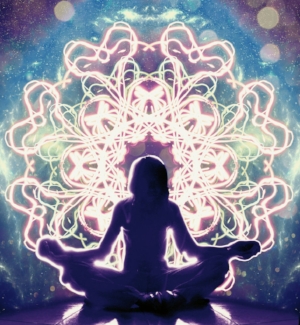“Distance Reiki: Against Weirdness” (Part 2 of 4)
Part 2: It’s just…weird.
Plain and simple: many critics of Reiki are dismissive of the worldviews that have evolved in China, India, and Japan over the last several millennia. This dismissiveness hides behind an unreflective privileging of Western principles of Reason, which, since the Enlightenment, have crowded out other forms of knowing such as intuition, embodied thinking, and even artistic research. There are, of course, places in the West where these other forms of knowing thrive, from Montessori to the Waldorf School to Black Mountain College to Yoga, etc., etc. Primarily, however, and this is especially the case in the institution of Western Medicine, Ki is not a recognized entity because the philosophy of the mind and body that supports it is deemed inferior and primitive.
Of course, we don’t have to work hard to dismiss this premise. Besides the very simple step of watching a PBS documentary about the strength of Eastern culture, we could turn to any number of Western philosophers who have laid bare the false and harmful side of Reason. I won’t go into this here, but if you’re interested in reading these excellent critiques, I point you toward Michel Foucault’s Birth of the Clinic, Roland Barthes’s Empire of Signs, and Dipesh Chakrabarty’s Provincializing Europe. (Very briefly, Foucault will give you a critique of the reason underpinning the medical discourse that still pervades Western society, Barthes will give you a poetic exploration of the notion of “Japan,” and Chakrabarty will give you a solid Marxist, post-colonial critique of capitalism.)[1]
When I read arguments against Reiki on the Internet, I hear a voice beneath the words that says, “It’s just…weird. Isn’t it weird?” And this “weirdness” is a typically Western defense for cultural artifacts coming from non-Western countries. To counter these claims of weirdness, I draw your attention to a helpful website about the Japanese language, especially the post titled, “7 Ways Japanese Ki (気) Creates Interesting Meaning.”
In this article, the author, Adam, explains that this Life Energy is actually a term that shows up in several common Japanese phrases. He lists them for us:
気をつける
Literal translation: place your energy
Actual meaning: watch out, be careful
気を失う
Literal translation: lose your energy
Actual meaning: become unconscious
気を悪くする
Literal translation: make energy bad
Actual meaning: make someone feel uncomfortable, or unhappy
気になる
Literal translation: becomes energy
Actual meaning: something concerns you, something bothers you
気がある
Literal translation: there is energy, have energy
Actual meaning: have (romantic) interest in (someone)
気を使う
Literal translation: use energy
Actual meaning: carefully assess a situation and act in a way that you aren’t bothering someone and are attending to someone else’s needs.
気にしないで
Literal translation: don’t make it energy
Actual meaning: don’t worry about it
Adam’s generosity in sharing these phrases is warming. He offers us an opportunity to study the shift from literal translation to actual meaning. We tend to refer to this shift as that which gets “lost in translation.” For example, in the fifth sentence we see that a literal meaning of “having energy” actually registers in the ears of Japanese speakers as “having romantic interest in someone.” At once, we understand this experience. If you feel attracted to someone, your body starts to feel all funny when you’re around that person. When they walk into a room, you can feel them. What’s that all about? Is it possible that the feeling is not only a sense of embarrassment or anxiety within you but, rather, the entrance of another person’s life energy into the room? If you’re sensitive to this particular person’s frequency of energy, then you will respond with a bodily reaction. Who knows, that reaction might be LOVE.
The Ki that Reiki practitioners access is precisely this palpable life energy that exists between people. The major difference is that, through practice and training, a Reiki Master can sense all frequencies of Ki, not just the kinds that viscerally impact them on a personal level. Referring to Adam’s list of phrases, I would also say that a Reiki Master can sense the energy that makes people worry about things, the energy that we keep pent up when we feel frustrated, the energy that results from an uncomfortable interaction with someone, and the kind of energy that comes from having to be on guard at work or at home. There is nothing weird about these sensations. Reiki Masters cultivate their sensitivity to help others allow Ki to flow harmoniously throughout the body.
[1] Yes, I’m counting Dipesh Chakrabarty as a “Western” thinker. This is a somewhat controversial thing to do. He is from India and a member of the Subaltern Studies Group, which places his identity clearly outside of traditional Western categories. BUT: his schooling comes from the colonizing power, and he uses this schooling to undo the very ties that bind him, and thus, in an effort to introduce a complex dialectical sub-argument, I’m going to refer to him as Western.

